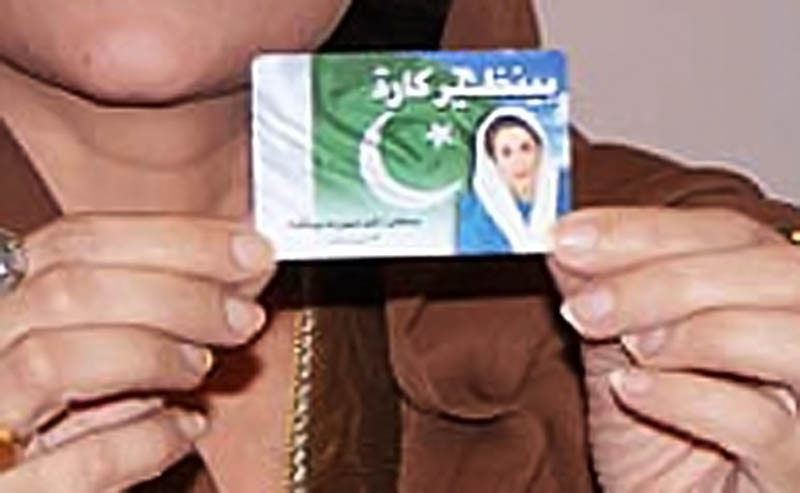
BISP board members Ali Raza Bhutta, Qazi Azmat Isa, Khawar Mumtaz, Atif Bajwa, Mr. Zafar A Khan and representatives from the Ministry of Finance, Economic Affairs Division, National Database and Registration Authority (Nadra) and Ministry of Inter-Provincial Coordination were in attendance.
This was the fourth board meeting in a period of eight months since the new chair of the board has been appointed.
80,000 interest-free loans every month: Dr Nishtar
During the meeting, Dr Nishtar assured the members of her commitment toward transparency, accountability and merit in the programme.
She said that BISP board and management had taken special measures to ensure merit in the system.
The board discussed the agenda including the budget for fiscal year 2019-20 and recommendations of various committees.
The recommendations included concept note on Tahafuz programme, expansion of Waseela-e-Taleem programme, proposal on increasing the stipend for girls, integrated data and information management database for social protection and setting up policy and research unit.
"We have empowered sub committees of the board and have facilitated their convening so that the agendas are well prepared and are brought to the board after thorough discussion in committee meetings" Nishtar said.
"The board is fully authorized to take decisions as envisaged in the law" she remarked.
The board also directed the management to fast-track the process of appointing external auditors to conduct audit for the year 2018-19.
Dr Nishtar apprised the members about the recently held meeting of the Risk Assurance Committee and elaborated on the "risk register mechanism" introduced in BISP.
"There will be a special meeting of the board to review the risk mitigating mechanisms and safeguards against error, fraud and corruption," she noted.
The chairperson further explained that BISP will be one of the first agencies in government to have a systematic and modern mechanism to identify and address risks.
"This is a significant step towards proactive modernization of public sector organizations," she observed.
Dr Nishtar told the participants that in her capacity as adviser to the premier, she had issued detailed governance-related instructions to develop systems and improve transparency and accountability in all organizations coming under the purview of poverty alleviation and social safety division.
Her instructions encompassed the practices developed in private sector and modern public management.
The chairperson briefed the board on PM's 'Ehsaas programme' and the role assigned to BISP on it.
She announced that under the 'Kafalat programme,' seven million women would be educated on financial and communication matters enabling them to run bank accounts and use mobile phones.
In addition to this, a new health and nutrition programme was being designed.
"Moreover, under the 'Tahaffuz programme', in case of any sudden emergency such as accident, health issue etc, people would be able to
contact the government through SMS (short message service) and assistance will be provided to them within 48 hours," she said.
The board approved the National Socio-Economic Registry (NSER) manual to further streamline the processes under the ongoing NSER survey which will update the current database of the beneficiaries.
Similarly, approval was given to various amendments in the payment manual. The amendments provide procedures for disbursement of stipends to beneficiaries with amputated hands or fade fingerprints. Biometric verification of such beneficiaries through Nadra is not possible. Through this process, such beneficiaries will be able to receive stipends.
The board resolved to contribute to the objectives of 'Ehsaas' through effective, impartial and apolitical reorganization of BISP.
1732498967-0/Outer-Banks--(1)1732498967-0-405x300.webp)
1732086766-0/BeFunky-collage-(74)1732086766-0-165x106.webp)















COMMENTS
Comments are moderated and generally will be posted if they are on-topic and not abusive.
For more information, please see our Comments FAQ